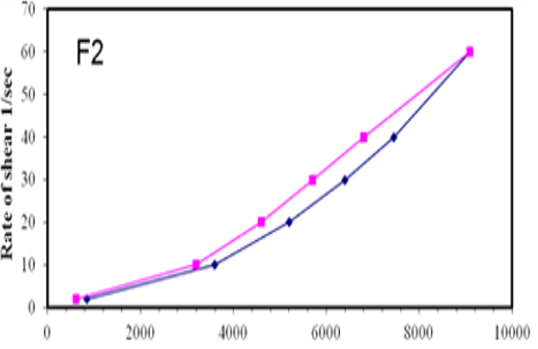Abstract
Aloe is a genus containing over 500 species of flowering plants. The most widely known species is Aloe Vera [AV], which mainly used internally and externally on humans as alternative medicine. The commercial topical dosage form has some limitations as absorption variability, short retention time, and improper viscosity and consistency. This research aimed to reformulate AV as a topical hydrogel, to assess the rheological properties of this formulation, and to study the effect of storage on its rheological properties. AV hydrogel different formulation was prepared by using 0.5, 1, and 2% Carbopol 934 as a gelling agent in different concentrations. The rheological properties as viscosity, Farrow's constant, and rheological behaviors were determined. The effect of storage for twelve-month on the rheological properties was also performed. The results indicate that direct and non-linear relation between the concentration of carbopol 934 and the estimated viscosity of the hydrogel. The viscosity ranged from 9073 -936451 cp, which is suitable for topical application, the Farrow's constant was > 1; which confirmed the pseudoplastic flow with a thixotropic behavioral rheology. The effect of storage of formulation for 12 months has no significant effect on all rheological parameters at p ≤ 0.5, which indicated the stability of the prepared hydrogel. AV successfully prepared as a topical hydrogel; this formula will help in the elimination of improper consistency associated with topical marketed products. The rheological assessment indicated the suitability of the prepared formulation for topical application, the excellent stability in flow properties against storage for a prolonged period, and the formulation exhibited pseudoplastic flow with thixotropic behavioral rheology
Full text article
Authors

This work is licensed under a Creative Commons Attribution-NonCommercial-NoDerivatives 4.0 International License.

